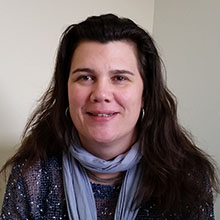Youth Development Alliances
Project Director:
EDC Staff:
Funded by:
U.S. Agency for International Development, JP Morgan Chase Foundation
Focus Area:
Youth & Workforce Development
Services:
Implementation
Duration:
2013-Present
Challenge
National policies typically set broad priorities and goals, while provincial, city, and municipal officials must translate them into action. Coordinating the many local agencies, businesses, and community interests involved at this level is complex, and implementation can splinter—often leaving the most vulnerable, especially youth, behind.
To address this coordination gap and empower young people, EDC has launched over 40 youth development alliances (YDAs) in the Philippines, Rwanda, and Liberia. Each city-level YDA brings together representatives from local government, national government line agencies, service providers, higher education institutions, and the private sector as well as youth leaders to improve education and employment outcomes for youth. YDAs solve the coordination problem by bringing together youth and other local leaders, establishing a common vision, and supporting action planning at the local level that prioritizes economic opportunities. They also act as a catalyst and a connecting body for youth services. YDAs ensure that youth are aware of and have access to critical resources and further education and training, connections to employers, or other job intermediation services. After being incubated by EDC, YDAs are fully sustainable and locally funded.
Key Activities
- Dynamic local labor market assessments: Conduct ongoing evaluations of local economic conditions to identify emerging opportunities in rapidly evolving green and greening sectors at the city or district level
- Alignment of skills and market needs: Facilitate connections between educational institutions and tailored upskilling/reskilling programs, ensuring training aligns with growing green sectors and local job opportunities
- Support for enterprises: Promote the greening of processes across a broad spectrum of enterprises—from large businesses to thousands of micro-, small, and medium-sized enterprises (MSMEs)
- Youth-led innovation: Encourage innovative solutions among youth to support a just transition toward sustainable economic models
- Resource mobilization: Leverage public and private funding toward tangible immediate actions in decarbonization and sustainability
- Data-driven decision-making: Collect and share local labor market data to inform and continuously refine skilling programs, enhance start-up support, and improve job placement services in the green and blue economy
- Local mechanism for joint planning and coordination: Ensure that local resources, including from the private sector, are effectively invested and coordinated across a wide range of local agencies, youth-led and youth-serving organizations, and others through establishing a common vision and joint action planning
Impact
- YDAs have been implemented in 42 cities in the Philippines, Liberia, and Rwanda.
- Rwanda: Each YDA is self-funded. At YDA meetings, each YDA member present their priorities, and members then match priorities and activities to resources available.
- Philippines: 15 YDAs are enshrined in local ordinances or local law through the mayor’s office.
- In each of the three countries, we have received requests from neighboring cities to launch more YDAs.
Additional impacts include:
- Resource mobilization: Collectively, the YDAs have mobilized roughly US$6 million in public and private resources to promote their local economic priorities.
- Efficiency gains: In the Philippines, YDAs enabled organizations to maximize resources and coordinate training more effectively. This helped reduce overlapping service provision, foster stronger connections and collaboration, promote a clearer understanding of each agency’s responsibilities, and identify which agency is best suited to address specific needs or programs.
- Internal referral system: In the Philippines, each YDA has established, implemented, and sustained a formalized internal referral system. This system lays out the steps and procedures for youth not in employment, education or training (NEET) to navigate education and employment services.





